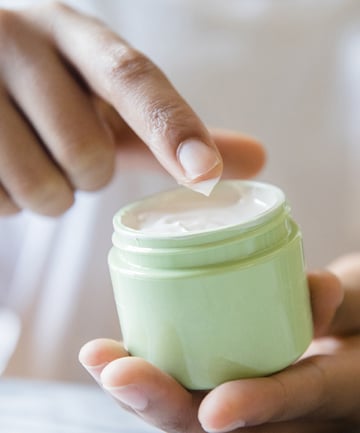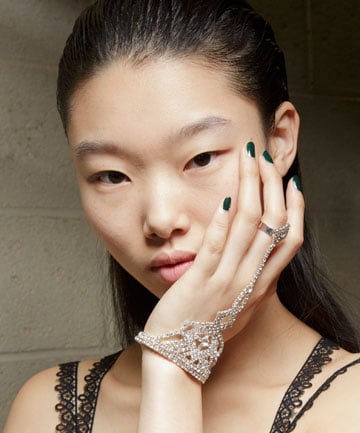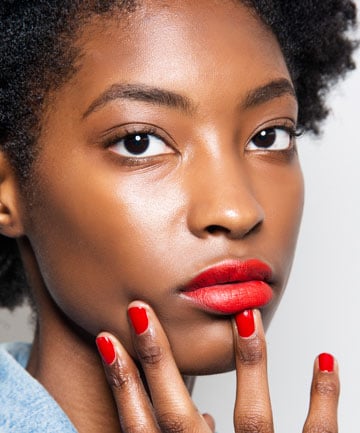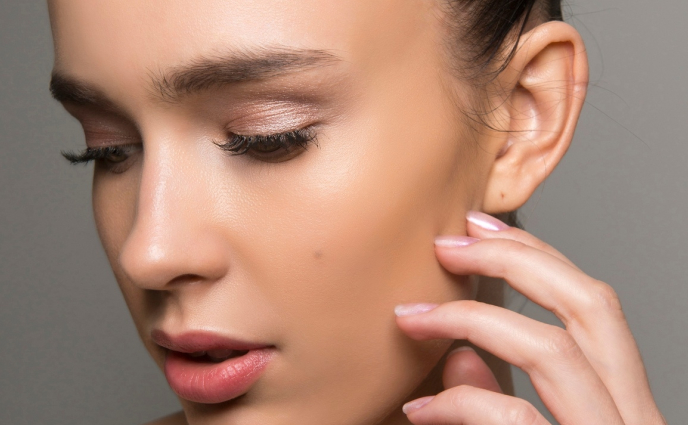If you're going to choose just one skin care ingredient to invest in and use regularly (not including SPF), it ought to be a retinoid product. Retinol is available over the counter, and its stronger version, retinoic acid, is available via prescription.
"Retinoids are the only scientifically proven cream to have an effect on the aging process. They help our skin exfoliate and stimulate superficial collagen, which is what our skin needs to stay youthful," says Dr. Adarsh Vijay Mudgil of NYC's Mudgil Dermatology. "They can be irritating and cause the skin to get red and flaky. Some folks may only be able to use a retinoid two to three times per week. The key here is listening to your skin."
We recommend working your way up in both potency and frequency, upping your dosage once every four weeks or so. The flaking, redness and sensitivity that Mudgil mentions is a process called "retinization" in which your skin gets used to the product. This usually passes after 12 weeks.
Image via JGI/Jamie Grill/Getty
It's so tempting to pop a pimple or pick at your skin, but this is a recipe for potential infection, post-inflammatory hyperpigmentation (PIH) that lingers for weeks, and even permanent scarring.
"Picking causes inflammation and breaks down collagen and elastin, [which makes] skin more vulnerable and therefore more susceptible to infections," notes Engelman. "A healthy skin barrier will best fight off breakouts."
Image via Imaxtree
Your skin has a built-in function for moisturizing (that'd be sebum/oil output), but chances are, it still could benefit from an extra dose of hydration. Whether it's a lightweight product (gels or water-based creams are best for this) or a heavier option (oils and oil-based creams), make sure you apply your favorite moisturizer every single night. If you're feeling extra ambitious, do the same in the morning. Your skin will be less flaky, more glowy and definitely healthier.
Image via Imaxtree







